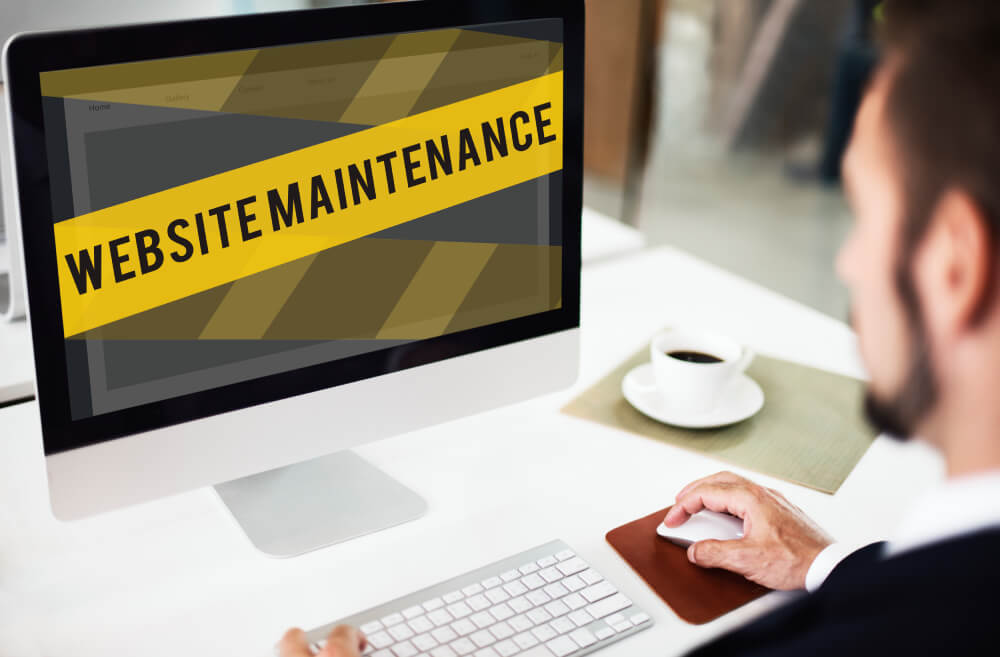The online face of your company is its website. To guarantee that your website functions at its best throughout time, you must maintain it in addition to building a fantastic website. For security, functionality, and user experience, frequent website maintenance is crucial, regardless of whether you manage an e-commerce site, a blog, or a business website. Ten useful recommendations to maintain the best possible condition for your website.
1. Regularly Update Software and Plugins
For optimal security and functionality, make sure your themes, plugins, and content management system (CMS) are up to date. Outdated software can cause compatibility problems and security threats for your website. To make sure everything goes as planned, set reminders to check for updates and apply them as soon as possible.
2. Regularly Backup Your Website
By backing up your website, you can be sure that in the event of a data loss, cyberattack, or other problems, you can restore it. Depending on how frequently your website is used, schedule automated backups for once a week or once a month. Backups should be kept in a safe place, like cloud storage.
3. Monitor Website Speed
SEO and user experience both depend on the performance of websites. Slow websites may have higher bounce rates, which means visitors will depart before viewing your content. Utilize resources such as Google PageSpeed Insights to test your website’s load times on a regular basis. Then, optimize it by reducing code, caching, and image compression.
4. Fix Broken Links
Broken links lower your SEO rankings and annoy visitors. Check your website often for broken or dead links, particularly in product pages and blog posts, and make the necessary corrections or removals. Screaming Frog and Google Search Console are two tools that might assist you in identifying bad connections.
5. Test Forms and Interactive Features
Your shopping carts, contact forms, and other interactive elements must always work correctly. Test frequently to make sure that all interactive components are working properly and that forms are submitting successfully. This is especially crucial for websites that sell goods online.
6. Review and Update Content
Visitors may become confused and lose trust in you if your content is outdated or irrelevant. Make sure all of the material on your website—including blog entries, product descriptions, and company details—is accurate and up to date by regularly reviewing it. Additionally, update your keyword strategy to maintain relevance in search results.
7. Run Security Audits
Any website must prioritize security. Conduct security audits on a regular basis to find possible weaknesses. This involves validating your SSL certificate, scanning for malware, and ensuring that strong passwords and two-factor authentication are in place. For more security, think about purchasing a security plugin or service.
8. Optimize for Mobile
Mobile SEO is essential since mobile devices now account for the bulk of website traffic. Make sure your website is responsive, which allows it to easily adjust to various screen sizes and gadgets. To ensure that every user has a flawless experience, test your website across a range of devices.
9. Check Website Analytics
Mobile SEO is essential since mobile devices now account for the bulk of website traffic. Make sure your website is responsive, which allows it to easily adjust to various screen sizes and gadgets. To ensure that every user has a flawless experience, test your website across a range of devices.
10. Clear Out Unused Files and Plugins
Unused media assets, themes, and plugins might make your website run slower and provide more security threats. Periodically evaluate your site for unneeded elements and eliminate anything that is no longer in use. This maintains the order, efficiency, and cleanliness of your website.
Bonus Tip: Plan for Growth
Your website should change as your business does. Think on how your website could need to grow in the future, whether it’s because of more features, more content, or more powerful servers. Regular maintenance allows you to keep ahead of challenges and plan for ongoing development.
Conclusion
Keeping your website up to date is essential to running a successful online business. You can maintain the security, functionality, and user engagement of your website by adhering to these suggestions. Frequent upkeep guarantees that your website will assist your business objectives in the long run and averts possible issues.
